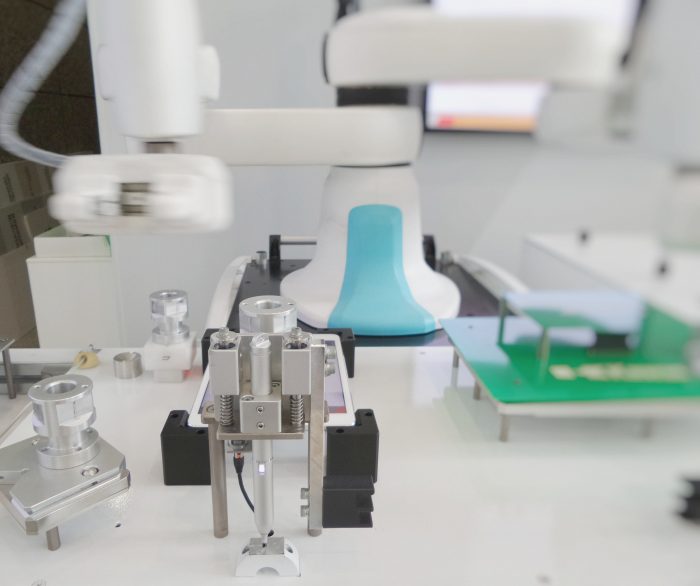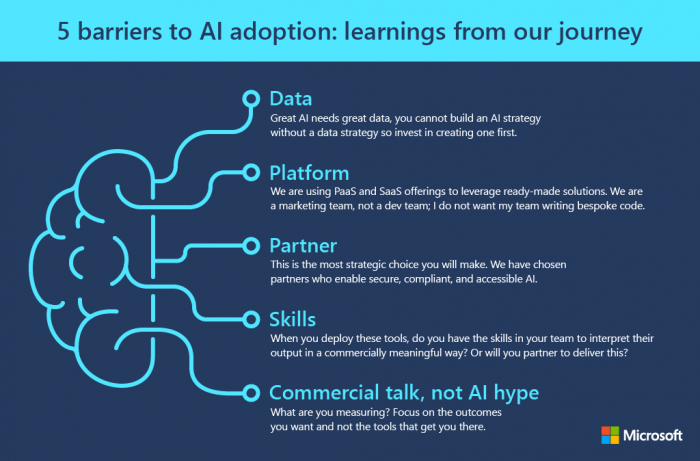
When we first started to hear more about AI in the workplace, there was a lot of doom. People were more or less saying “many jobs would be taken and robots would rule”.
Now we’ve all calmed down a bit, AI is starting to make the work/life balance of those using it a whole lot better.
AI is automating processes, improving customer experience, increasing sales, optimising support and generally handling the repetitive tasks none of us particularly want to do – all without the need of a data science team. So far, AI is proving to be a valued team member.

AI in Microsoft Dynamics
For Microsoft Dynamics in particular, a couple of examples on how AI in the workplace works, includes a Late Payment Predication extension.
This identifies if sales invoices are going to be paid on time or not. Recognising customer behaviour over how invoices have been paid in the past, this technology predicts when payment is likely to happen – allowing the accounts department to flag or chase payment if necessary.
Another tool is the Sales and Inventory Forecast extension. This calculates when a potential sale will take place, using historical data to make predictions about stock.
Helping to avoid shortfalls, you can drill down to the most granular level so as not to leave customers disappointed.
Microsoft research
As mentioned in one of our recent longer reads, Achieving project success for your Digital Transformation, in spite of the many advantages of AI in the workplace, take up isn’t so great.
Recent research performed by Microsoft found that although “81 percent of executives believe AI will be integral to their business in two years.” And “31 percent of enterprises say AI is on the agenda for the next 12 months.” Only 15 percent of organisations questioned were currently using AI.
Although this isn’t exactly a singing endorsement, there is now significantly more recognition however, that organisations will need to futureproof in order to use this technology sometime soon – or face being left behind.
Creating the AI Business School, Microsoft are providing businesses and their employees the tools needed to learn more about, not only how AI can help their company, but also enhance employee’s roles too. They also provide many documents that could help businesses to maximise the AI opportunity.

Using education to drive adoption, Microsoft says, “To ensure everybody has the right skills to work with AI to help them achieve more in the future of work, we’ve committed to helping 500,000 people develop their AI skills by 2020 through our AI Academy.
Our AI Academy pulls together a collection of courses and learning resources to help you develop the skills you need to work with AI so you can fully embrace it’s potential – whether that’s to increase your productivity or create a stronger customer experience.”
Microsoft are also using their own key learnings on AI to help inform those who are unsure about bringing AI in the workplace – as shown in the following diagram.
Used as a tool for good, AI will empower businesses and employees, accelerate development and allow more time for creative and strategic planning.
To move to Microsoft Dynamics 365 Business Central or find out more about how AI could work for you and your business, get in touch with one of our experienced team here.

